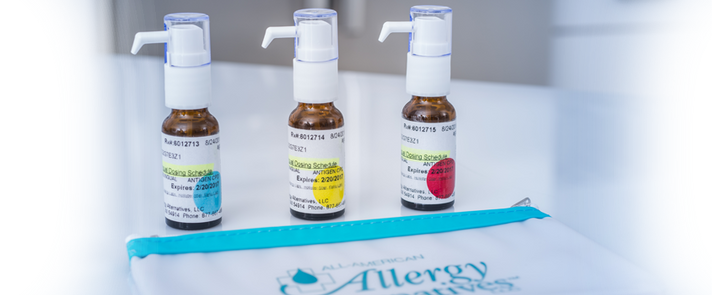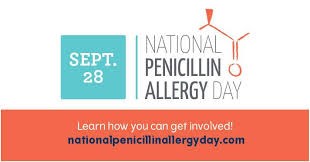Today, September 28, 2018 is recognized by several states and health organizations as the second-annual National Penicillin Allergy Day, a national awareness day to help spread the word and educate the community on penicillin allergies and testing. This date holds significance in the medical industry and antibiotic community as the date Alexander Fleming discovered penicillin, the world’s first antibiotic, in 1928.
Penicillin allergy is one of the most frequently reported allergies; however, nine out of 10 patients reporting a penicillin allergy are not truly allergic, which can lead to higher use of broad-spectrum antibiotics and an increased risk of adverse events for patients. Inaccurately labeling patients as penicillin allergic is, therefore, recognized as a significant public health problem—and it is important for patients and providers to know the facts about penicillin allergies to help combat the rise of antibiotic resistance.
“We are eager to continue spreading critical awareness around penicillin allergies with the second annual National Penicillin Allergy Day,” said Jorge Alderete, President ALK, Inc. “Together we can assist communities in educating patients, healthcare providers and others on the importance of proper diagnosis, the facts about penicillin allergy prevalence, and the risks associated with an unverified diagnosis. With proper diagnosis and hospital antibiotic stewardship efforts, health providers and patients can reduce the use of alternative antibiotics. These alternative antibiotics, when used unnecessarily, can lead to higher treatment costs and stronger antibiotic drug resistance.”
Several national organizations have joined efforts to help educate and bring awareness to penicillin allergy and the importance of testing.
“It’s vital that doctors understand the importance of confirming penicillin allergy, but it’s even more critical that those who carry the label be tested by an allergist or other healthcare provider trained in allergy testing to be sure,” said allergist Bradley Chipps, MD, president of the American College of Allergy, Asthma and Immunology. “An allergist or other healthcare provider can work with a patient to find out if they are truly allergic and determine the best medications available for treatment. Patients who are found not allergic will be able to use medications that are safer, often more effective, and less expensive.”
“Many studies establish that the majority of individuals labeled as penicillin allergic actually are not truly allergic to penicillin (and other members of this family of antibiotics). There are proven methods to rule out penicillin allergy and doing so in these individuals would allow optimizing the choice of antibiotics among those who are demonstrated not to be allergic. This day is a great way to spread the word, help ensure that patients have access to the safest possible antibiotic and work to address the increasing emergence of antibiotic resistance,” said Dr. Robert Wood, MD FAAAAI, President of the American Academy of Allergy, Asthma & Immunology.
https://www.tullahomanews.com/news/business/nationalpenicillinallergyday-increases-awareness-of-penicillin-allergy-for-second-year/article_d76f25fa-cbfc-548f-8cda-6632f90ad26a.html


